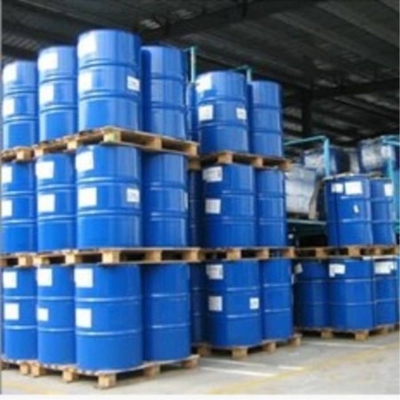Soybean inflation challenges the import policy, which should not be a medium and small oil
-
Last Update: 2008-11-03
-
Source: Internet
-
Author: User
Search more information of high quality chemicals, good prices and reliable suppliers, visit
www.echemi.com
Introduction: since the implementation of China's transgenic policy, the evaluation of its effect has been mixed Recently, this policy not only becomes the focus of futures market, but also is concerned by the whole society The reason is that the rise of soybean and soybean meal prices has not only had a huge impact on the entire industrial chain, but also affected the whole society, and had a substantial impact on the lives of residents Although the latest report of the US Department of agriculture is the main reason for the sharp increase of global soybean and soybean meal in October, the interruption of China's soybean import due to the extension of temporary GM management measures obviously plays a role in promoting this Behind the rise and fall of soybean price in more than one year, the game of Sino US soybean trade policy is actually launched The uncertainty of d6x policy leads to the increase of enterprise's risk cost Although the soybean import this year is significantly higher than that of last year, in addition to the larger growth factors of soybean consumption, the uncertainty and randomness of GM policy lead to the increase of turnover inventory of enterprises, which is also a very important factor According to statistics, in 2002, the ratio of turnover inventory and daily processing volume of oil enterprises was generally about 5-10, but it has been greatly increased to 50 For enterprises with a daily processing capacity of 500 tons, the turnover inventory reaches 25000 tons Last year, when the average ratio was 7.5, the turnover inventory was only 3750 tons Assuming that there are 260 processing days in the whole year, the average price of soybean in stock is 2600 yuan, the one-year loan interest rate of the bank is 5.32%, and the storage fee is 0.3 yuan / day ton, the daily output of the enterprise is 500 tons, the annual processing of 130000 tons of soybean, the capital interest occupied by 25000 tons of soybean in stock is up to 3.458 million yuan, and the storage fee is 2.7375 million yuan, the total amount of which is 6.1955 million yuan When d6x was spread over 130000 tons of soybeans, the pressing cost per ton increased by 47.66 yuan, compared with 7.15 yuan last year Therefore, the additional cost caused by the uncertainty of transgenic policy is 47.66-7.15 = 40.51 yuan / ton If the whole industry squeezes 26 million tons in the whole year, the risk cost will be as high as 1.053 billion yuan If 1.053 billion yuan is paid to soybean farmers, they can get 64 yuan of subsidies per ton based on the 16.5 million tons of soybean output last year The partial restriction of d6x license leads to the asymmetric game of soybean trade between China and the United States There are two conditions to obtain the import soybean license One is that the foreign soybean supplier must first obtain the temporary certificate of import genetically modified agricultural products issued by the Ministry of agriculture; the other is that the domestic oil pressing plant must obtain the approval document of agricultural genetically modified biological identification review and approval, and then submit the two documents to the AQSIQ for the license before the soybean can be imported In this process, the purchasing information of Chinese oil companies is transparent to foreign investors, which leads to the asymmetric game of soybean trade between China and the United States In the case of Chinese information transparency, it is self-evident who will take the initiative in the game Although AQSIQ later cancelled the 30 day waiting period before the license came into effect, foreign funds lost 30 days to push up the price of CBOT soybean futures, which to some extent improved China's disadvantage However, as the basis trade is adopted in the international soybean trade, foreign soybean traders can still report a higher basis in the basis trade to obtain excess profits when the contract price does not have time to slowly push up D6x soybean import policy lacks overall consideration Due to the lack of overall consideration of soybean import policy and transgenic policy, the overall welfare of the country actually decreased in the process of implementation The question is whether this is good for the overall interests of the country? If there is no seasonal bottleneck in Northeast Railway transportation capacity, there is no problem in the selection of excessive extension time of GM policy from September to October However, the current situation is that the transportation capacity of Northeast Railway is tense in the fourth quarter of each year During the tightening period of imported soybeans, southern oil companies had to go north to collect soybeans Enterprises need to pay a considerable search fee for this This is an increase in transportation costs for oil companies and more like transfer payments for countries But the problem is that the search fee is not fully turned over to the state treasury, but into the key departments of the railway system Therefore, no matter how many years the railway tension lasts, the annual search fee paid by the oil and fat enterprises has no contribution to improving the efficiency of the railway system After the enterprises pay extra transportation cost, they will control the purchase price of soybean Therefore, the interruption of soybean import for the reason of extension of GM policy between September and October will not bring substantial benefits to soybean farmers, but will benefit some people in the rare resources sector Besides d6x, the current policy does not comprehensively balance the contribution of soybean farmers and oil companies to the country in the short term, and the relationship between the policy cost of the whole society to increase the cost of feed enterprises and breeding enterprises If the former contributes more to the country than the total social cost caused by the latter, the policy benefit is to increase the overall welfare of the country; otherwise, it will reduce the overall welfare of the country From the current situation, it is an indisputable fact that the overall welfare of the country has been reduced The d6x import policy should not be a ban order for small and medium-sized oil plants, and the d6x national treatment has not been well reflected in China The national treatment not only refers to China's fair policies and opportunities for foreign investors, but also should be naturally reflected in the domestic small and medium-sized oil plants At present, the licensing of imported soybeans is based on the daily output as the standard, and the license is issued only when the daily output is more than 500 tons / day If the domestic soybean supply is sufficient, the implementation of such a policy of demarcating daily output can really play a role in regulating market supply and demand But at present, the domestic soybean supply is seriously insufficient, this kind of policy will only produce monopoly In addition, large-scale oil companies are mostly invested or jointly built by large foreign companies, and the production demarcation is also suspected of suppressing national industries, which deviates from the purpose of the introduction of the GM policy The Chinese side of the joint ventures are mostly COFCO system enterprises COFCO system is inextricably related to the relevant departments making policies The market inevitably doubts its interest relationship D6x in fact, the regulation of oil industry policy should be mainly reflected in foreign capital and state-owned capital, while the restrictions on private capital investment should be relaxed History has proved many times that it is the state-owned capital that leads to the repeated construction of an industry This is because the property right and the right to use state-owned capital are separated, and the decision-making of the central and local governments sometimes deviate However, the current situation is that the small and medium-sized oil plants invested by private capital have been blocked by policy, while the investment of state-owned capital such as COFCO system in the oil industry has increased unabated If the government's "protection of the market" eventually produces state-owned enterprises that can compete with foreign large-scale oil enterprises, it is OK, but once the history proves that such state-owned enterprises relying on policy support are often difficult to stand on the market economy, then China's oil enterprises will lose all over the market Judging from the outcome of many large state-owned enterprises supported by state policies entering the market economy since the founding of the people's Republic of China, this concern is not unreasonable D6x
This article is an English version of an article which is originally in the Chinese language on echemi.com and is provided for information purposes only.
This website makes no representation or warranty of any kind, either expressed or implied, as to the accuracy, completeness ownership or reliability of
the article or any translations thereof. If you have any concerns or complaints relating to the article, please send an email, providing a detailed
description of the concern or complaint, to
service@echemi.com. A staff member will contact you within 5 working days. Once verified, infringing content
will be removed immediately.







